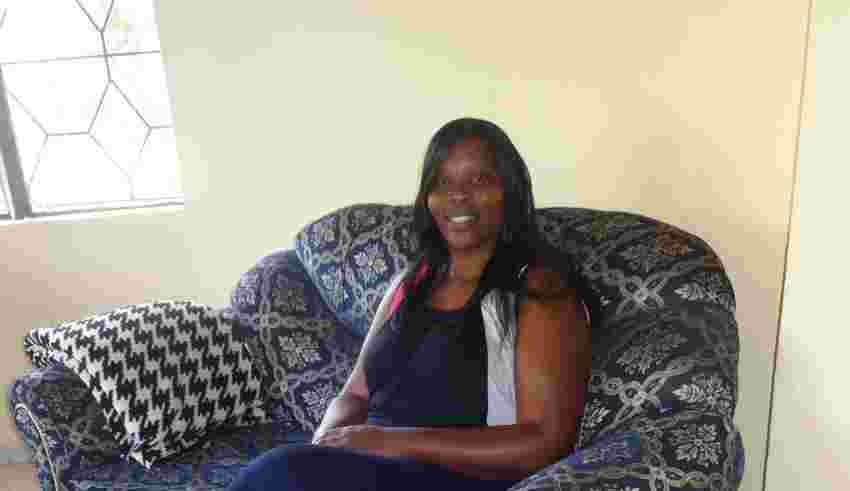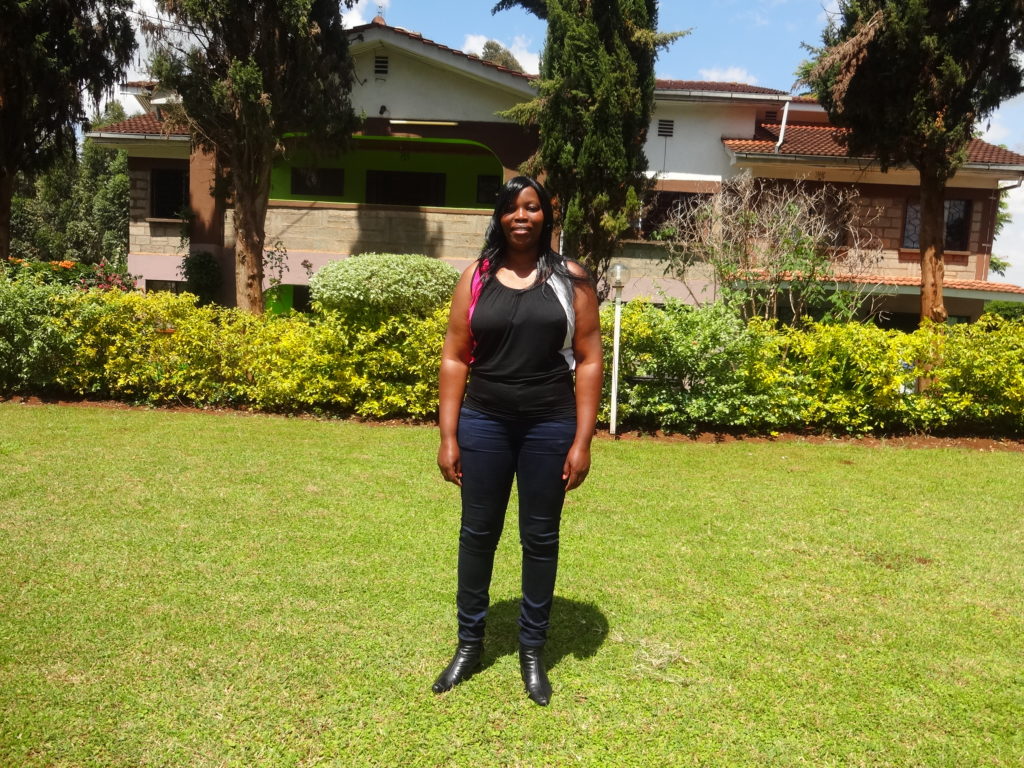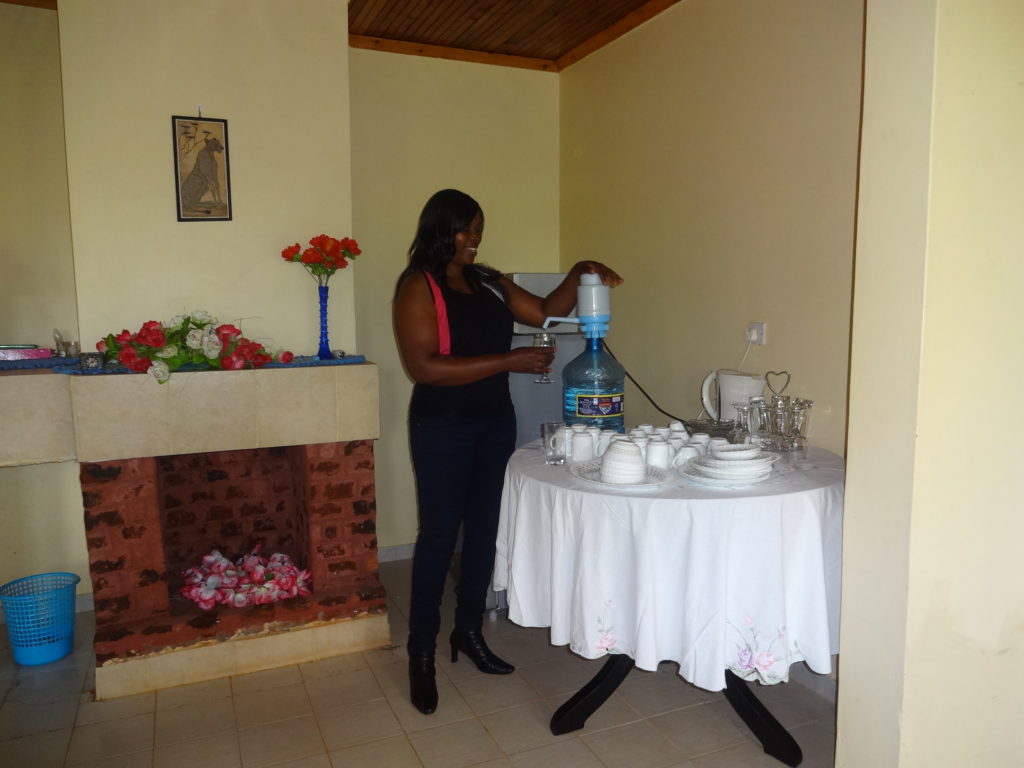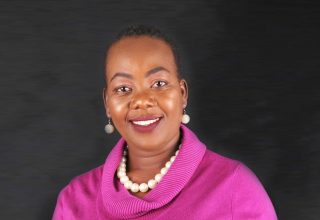
Winfred Mathenge is the second born in family of six, four sisters and two brothers’ from Tetu, Nyeri. Her parents were primary school teachers and even though today the six siblings are in business, their upbringing never predisposed them to engage in any form of trade. When Winfred graduated from high school, her mother advised her to apply for educational courses because apart from teachers, most people were not getting employed. Her upbringing was ‘Work hard and get a job.’
Winfred did business administration in Kenyatta University. She ventured into business because many years after college, the only job she got was as a sales person at an insurance company. “That can’t qualify as a job since it was based on commission. Life got me hardened and I learned the hard way. It was easy for me to start a business having gone through those challenges,” she says.
Her journey in business started with a statement from Joel Osteen, a televangelist about “the multiple factor”. It’s about God using the little you have and multiplying it for you to harvest in bulk. This was a wake-up call for her. “When I looked around the house, I could see cups, plates, a seat and beds. I took the initiative and started Legacy Gardens fully furnished and serviced apartments in 2006,” she says. She relocated to Kilimani area in Nairobi as it wasn’t possible to do such a business in Kasarani where she lived.
She would explain to the owner of an apartment the kind of business she was doing, then rent a house, furnish it and lease it to another person either on daily or monthly basis. Then, the fully furnished cottages and apartments were not as many as they are today. She would rent a house for Ksh.60,000 to Ksh.100,000 per month depending on how executive it was; the tenant and the location. She would lease it out at a minimum of Ksh.120,000 per month. At the time water, electricity and services were included in the rent. That way she would get a clean Ksh.60,000 or more on some houses. She started with one house and it grew over time.
Winfred got the initial capital from her savings, though she had never thought that she could do that kind of business. “When I was still working I used to buy big things. A big bed, a big radio, a big TV. I would take that into a house and a tenant would pay Ksh.200,000 per month for it, because I had good things,” she says smiling at those memories. She immersed herself completely in her business because she doesn’t believe in side hustles. “You can’t chase many ventures, you will eventually fail in one,” she cautions.
In 2007 as a result of the post electoral violence, the expatriates who constituted the bulk of her clientele left the country, and she was left struggling with daily bookings. Her profit margins greatly reduced, but she didn’t give up. “When you are used to the jua kali kind of life you have to make it,” she says with determination. From 2009 things went back to normal and in 2012 she opened Legacy Gardens Nyeri. It’s ideal for a weekend getaway alone or as a family.
Winfred learnt on the job, she had no prior training. It wasn’t easy since hospitality was totally different from marketing and PR. However she found it easier to sell something tangible as opposed to insurance which is just a promise. Winfred emphasizes the need to be thorough or “keen on the nitty-gritty” as she puts it. It’s important to be a perfectionist or hire staffs that are almost perfect. A budding entrepreneur must be hands-on. She must try and harmonise her business, and learn about the nitty-gritty while waiting to get experienced staffs.
Winfred believes in starting small, saving and growing gradually. One business gives birth to another one and so forth. She considers finances as the main challenge in business. Her advice is to start with something cheap without losing sight of the bigger picture. “Keep on saving and start operating on as little money as possible. If you are not the kind of person who can save, start buying stuff. Either way, start now. Don’t wait for tomorrow. Start small and grow. It’s better to make mistakes when you are small than when you are big. If you have the resources and can start big, make sure the labour you get is qualified to offer service at that high level,” she advices.
The second biggest challenge is skilled labour. Getting a person who can do some thorough work in a house can be an issue, as well as getting a person who’s self-motivated. She laments that some people will not work when not supervised, or their standards are very low. “No matter how well you pay and treat them, as long as they don’t have a sense of responsibility, you’ll not be able to build them. If you don’t have the time to push, get rid of them as soon as possible because they’ll give you a raw deal. Chances are you’ll get another good person. To other people you may look harsh but there are no two ways about it. For example you get a person who doesn’t know how to clean the toilets well. And maybe the next client will come with young kids, who may dip their hands in the toilet basin. You cannot expose these kids so that someone retains their job. Kick them out,” she cautions.
Getting to know what a client wants and trying to please all of them is another big challenge. “Be disciplined and have the client at heart. Don’t take a bigger job than you can handle. Delegate or connect your client with someone else who can deliver. In doing that you retain your client as friend and when they get a job that you can handle, they’ll definitely give it to you. Be gradual. Don’t be too ambitious at the expense of people,” she says.
She keeps asking her clients for feedback. She especially values children’s opinion because they are sincere. One day at Legacy Gardens Nyeri, a young girl exclaimed “This place is DULL! It’s just one colour!” Winfred asked her the colours she’d want and the girl chose pink. One of the rooms was painted in pink and ever since it has become a favourite for any small girl that visits with her family. “Those are things they’ll never teach you in class. You learn them on the job. You have to be keen on the client. You have to understand what’s not spoken and try to get it out. Read the body language. Parents may take a particular house because their child liked it but they themselves didn’t. Follow such a client and find out what they’d like, what their recommendations are,” she advices.
For Winfred the wisest way to invest the profits is reinvesting back in the business. It’s also important, she says, to always have money you can fall back on; because you may not have access to credit facilities when a big job shows up.
When it comes to paying yourself from your business, she advices on working with minimum basics. “Of course you need to buy clothes and take your child to school. Deny yourself luxuries and do with the basics. Once you concentrate on reinvesting, your business will yield even more, and then you’ll be able to afford some luxuries,” she says emphatically.
Winnie says that one should expect to make a lot of mistakes in business, but the most important thing is to correct every single one of them. She is convinced that money is a motivator, because as long as it comes in it is almost impossible to break down. “Money keeps most of people grounded even if they are not aware of it. It keeps them on their toes,” she assures.
The young entrepreneur believes that networking is the best way of marketing business. “A satisfied client will market you more than you going out of the way to look for clients. You just ensure the one person you get is happy. From that person you’ll get referrals,” she says, adding that on the flip side, since those people know each other, should you fail one of them you risk losing the whole chain. “You may think networking is tough but the speed at which it moves will shock you, especially with the younger generation. You get people in their 30s to come for a goat eating at Legacy Gardens Nyeri. If they like the place, that’s it. Throughout the function they are sending their photos on WhatsApp, they put you on Facebook, they talk to their friends; by the time they leave, they’ll have talked to enough people I can assure you,” she says.
She cautions against starting a unique business in an area where you are not sure there’s a clientele. Giving the example of Nyeri with its many hotels, which she says complement each other; she considers that when a particular business is booming in a certain area it’s an indication that there’s potential there. “Sometimes you may decide to put up a business that doesn’t exist in an area and it’s irrelevant because you are the only one. Again you have to know when to exit after an opportunity gets flooded,” she cautions. To those who wish to do many businesses, she recommends staying on the same line.
Throughout the interview, Winfred repeatedly ranks being hospitable as the highest quality needed to be successful in business. “Hospitality should be on your fingertips. Work on it over time. Hospitality is going to take you far,” she insists. She believes that women stand a better chance, especially because they are hands-on, are generally neater than men and are taught how to welcome guests from the young age. For her, being a woman in the hospitality is a huge plus.
Winfred reads a lot and listens to motivational speakers on her tablet and computer. One book she strongly recommends to everyone who wants to start a business is The Richest Man in Babylon, by George Samuel Clason. “It has those basic business concepts which I believe will exist years after we are gone.” She hardly watches the TV or listens to the radio.
When it comes to balancing work and private life, the mother of one daughter, 12 years old Abigail Wairimu, doesn’t consider this a big challenge since “it comes naturally for mothers,” she says. “At a certain point a mother feels the craving from her children. Listen to your instincts. All is not about work, work. Even your body at some times tells you. There’s a tipping point. As much as you want the money, you also need time for yourself.” To unwind Winfred travels a lot within Kenya. She likes checking into a hotel and learning a thing or two. She particularly likes going to the Aberdare forest.
Winfred’s role models are very successful and very rich people in their 70s. She didn’t want to mention them because they are public figures. She meets them mostly in Nairobi and some of them give her audience of up to 3 hours. They are mentors and they give her the best advice she can wish for. None of Winfred’s mentors is in the hospitality industry, and they share with her business concepts that are applicable to any business. She believes that it’s possible to access rich people in this country and gain from their mentorship, which is also one way of benefiting from their wealth.
Throwing in the towel has never been an option and it will never be for Winfred. She considers that she’s still far from achieving her goals; which grow bigger every year. She says that your goals are always ahead of your business. Her goal is to be perfect since the secret of business is perfecting. She will stay on the same line of business, but in different places. Thirty years from now, Winfred thinks that God willing she will have accumulated savings, the skills and perfected her craft. She will be able to expand since she’ll have a client base, a reputation, the knowledge and the labour; and she will be making less mistakes.
Her parting shot: “Perfect, perfect and perfect. In five years the kind of standards you’ll have will be high. Be innovative and creative. You can be simple but unique. Be clean and neat. Be keen on the nitty-gritty. Make sure everything is orderly to wow your clients.”
















